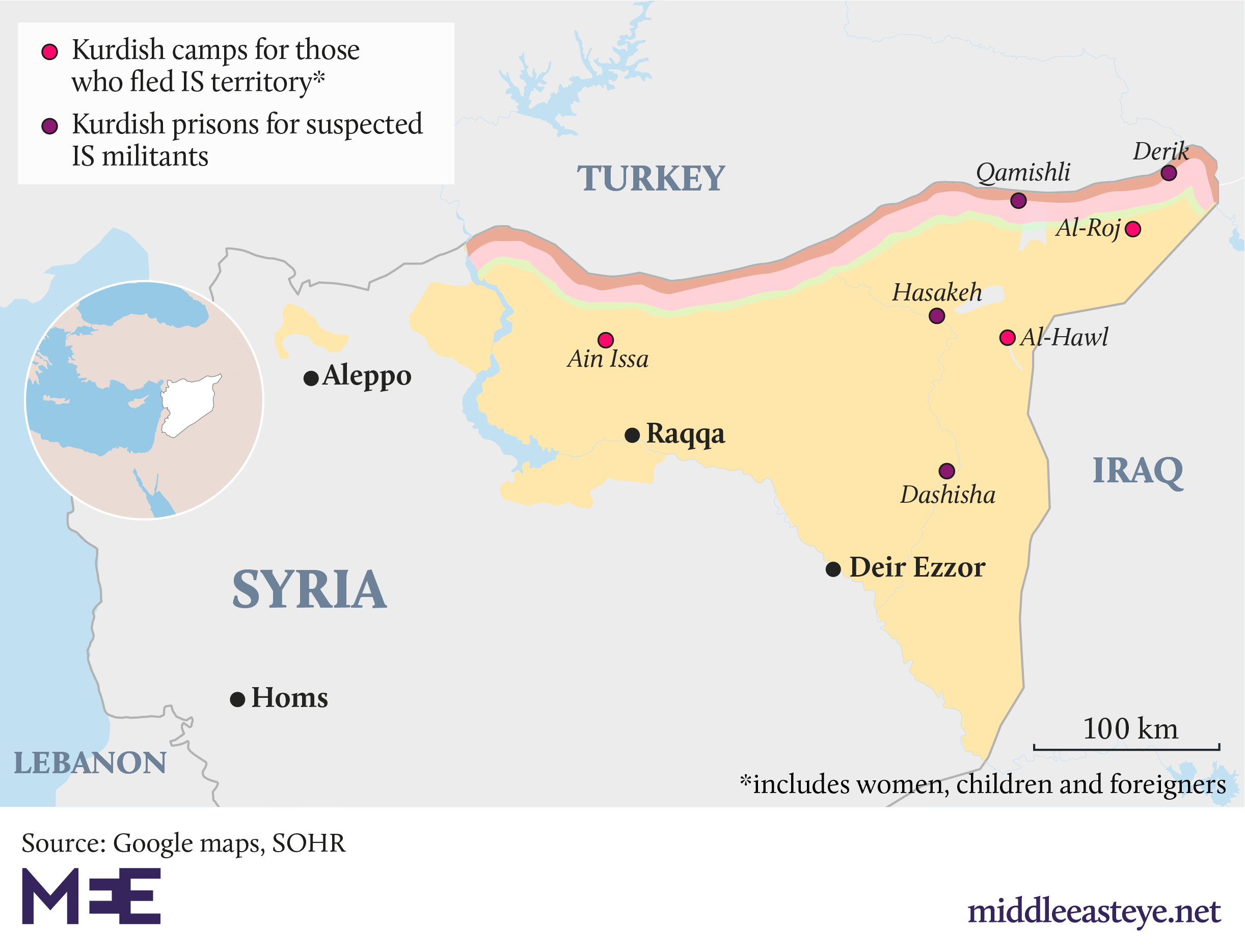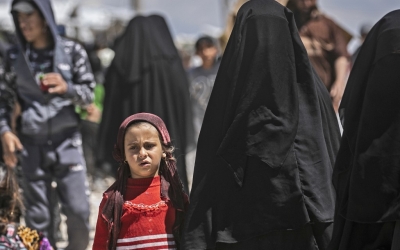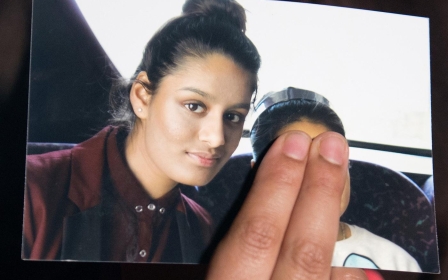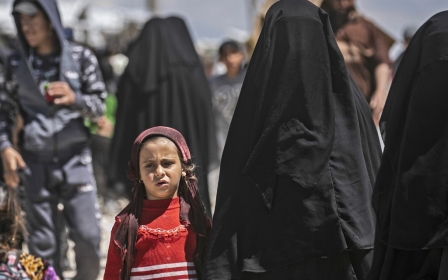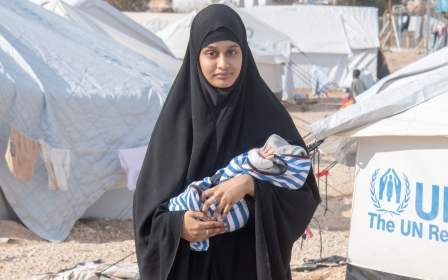Charities call on UK to return stranded children of Islamic State members

Major UK charities have joined calls for Britain to take back British children left stranded in Kurdish camps holding Islamic State (IS) group militants and their family members across northeastern Syria.
The call comes as the situation in Syria continues to deteriorate, following Turkey's decision to launch an offensive in areas controlled by the Kurdish-led Syrian Democratic Forces.
Last week, three orphaned British children of IS members were discovered in the Ain Issa refugee camp. Images posted by the BBC showed Amira, the eldest of the three siblings, describing life back in London.
'Some of the women who are now adults - and now mothers themselves - were children when they were recruited by ISIS, and they too need specialised support to recover from their experiences'
- Orlaith Minogue, Save the Children
The children went missing after their camp was shelled, reportedly by Turkish forces, on Sunday. However, it later emerged that the United Nations had retrieved them and taken the children to a camp in Raqqa to the east.
Hundreds of people suspected of having links to IS escaped Ain Issa following the Turkish attack, according to Kurdish officials.
New MEE newsletter: Jerusalem Dispatch
Sign up to get the latest insights and analysis on Israel-Palestine, alongside Turkey Unpacked and other MEE newsletters
Britain has previously said it is too dangerous to send British personnel into Syria to retrieve children of IS members. However, it said on Tuesday that it was planning to review its policy.
Foreign Secretary Dominic Raab said the government would "consider returns of minors and orphans" if they "represent no security threat" to Britain.
"The age of minors goes right the way up to close to 18. We would be willing to see them returned home if that can be done in a safe way given the situation on the ground," he told parliament.
The change in policy comes after former UK Home Secretary Sajid Javid rejected any plans to rescue the three-week-old baby of Shamima Begum, a teenager from east London who joined IS.
The death of Begum's son Jarrah in March led to criticism of the government, which has been accused of rendering the young Londoner stateless and abandoning her and her young child.
Rocco Blume, who heads policy and advocacy at War Child UK, said that children in northern Syria should not be "criminalised by their association" to IS.
"Will a child exposed to extreme violence need help? Yes, they would. But it is up to the British government to provide them with the help they need to be reintegrated into society," Blume told Middle East Eye.
"We have worked with children from the Democratic Republic of Congo, Sierra Leone, and South Sudan. They have all been indoctrinated in some way but we have supported them to re-enter society."
The children of IS members must be treated as victims as opposed to perpetrators, he said.
Earlier this year, the UK confirmed that it had allowed a "small number" of children to return home from Syria via third countries.
Mothers and children
The number of British children born to IS members remains unclear. Officials and aid agencies have, however, told Middle East Eye that dozens are suspected to be stranded in northern Syria.
Orlaith Minogue, conflict and humanitarian advocacy advisor for Save the Children, said children's mothers should also be a factor.
"Save the Children believes that children should be repatriated alongside their mothers or carers when it is in their best interest to do so," Minogue told MEE.
"Given the current situation in the northeast, it is not possible to do formal assessments there, and so the assessment of next steps should happen upon return to their country of origin, i.e. here in the UK."
Commenting on the return of mothers, Minogue noted: "For those British women who have broken the law, we believe that the UK has the expertise, resources and legal system to deal with that."
"Some of the women who are now adults - and now mothers themselves - were children when they were recruited by ISIS, and they too need specialised support to recover from their experiences," she added, using an alternative acronym for IS.
Prior to the Turkish offensive, aid agencies complained of the deteriorating situation inside displacement camps where individuals with links to IS were being held.
Common complaints from aid agencies included overcrowding, poor sanitation, and a lack of health facilities for detainees.
'The UK should act now to help get its citizens out of northeast Syria before it has the blood of its own nationals on its hands'
- Letta Tayler, HRW
Letta Tayler, a senior researcher at Human Rights Watch, said the Turkish offensive risked worsening the conditions.
"Conditions were unconscionably dire in camps for women and children held without charge as family members of ISIS suspects, and in horrifically overcrowded prisons for men and boys," Tayler told MEE.
"Since the Turkish incursion, the risks to these family members, the vast majority of them women and children, have risen exponentially."
Taylor warned: "The UK should act now to help get its citizens out of northeast Syria before it has the blood of its own nationals on its hands."
Middle East Eye delivers independent and unrivalled coverage and analysis of the Middle East, North Africa and beyond. To learn more about republishing this content and the associated fees, please fill out this form. More about MEE can be found here.


